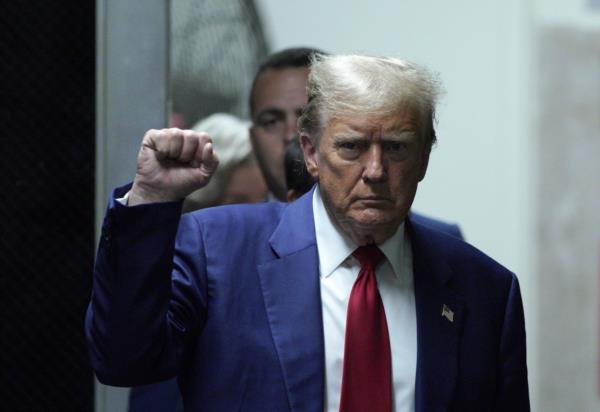
President Donald Trump has expressed his intention to utilize the National Guard as part of deportation operations if he secures a second term in office. In a recent interview with Time magazine, Trump emphasized his commitment to enforcing immigration laws and ensuring safety and order in the country.
While details on the specific implementation of these deportation operations remain unclear, Trump mentioned that he would not hesitate to involve the military if the situation warranted it. He highlighted his belief that the National Guard could effectively carry out the task at hand.
Historically, both National Guard and active-duty military forces have been deployed to support immigration efforts at the border. However, using these forces for direct involvement in deportations within the country's interior would represent a significant escalation and could face legal challenges.
Previous administrations, including those of Presidents George W. Bush and Barack Obama, have utilized National Guard troops to enhance border security through operations like 'Operation Jumpstart' and 'Operation Phalanx.'
When it comes to identifying and removing unauthorized individuals from the country, Immigration and Customs Enforcement's Enforcement and Removals Operations typically handle these tasks. The process of removal can be complex and costly, often involving air transportation and negotiations with other countries for repatriation.
It's important to note that federal law generally restricts the use of active-duty military for domestic law enforcement without specific authorization from Congress. Trump's stance on potentially overriding these restrictions has raised concerns.
Trump's strong anti-immigration rhetoric, which has been a focal point of his reelection campaign, includes labeling migrants as a threat to national security and advocating for stringent measures such as ending birthright citizenship and reinstating travel bans.
While the use of the National Guard for deportation operations remains a topic of debate, Trump's stance underscores his continued emphasis on immigration enforcement as a key policy priority.







